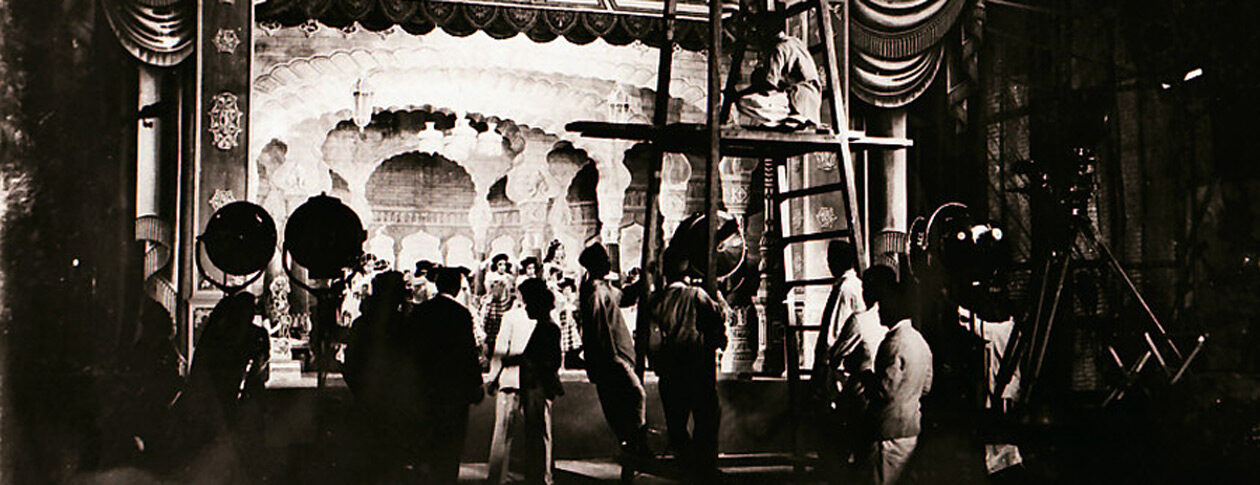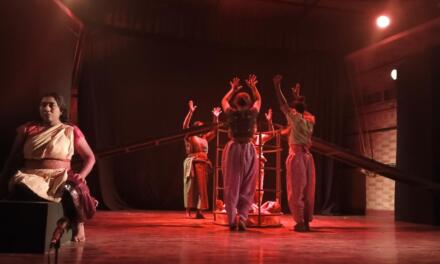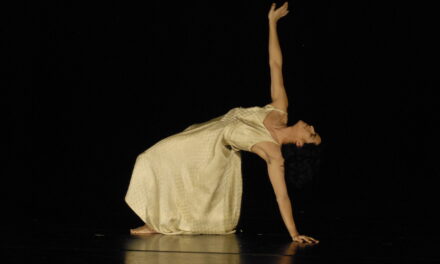The most striking aspect of Shakespeare in India today is that it seems to have at last got over its colonial hangover. It is well known that Shakespeare was first introduced to Indians under the aegis of colonialism: first as an entertainer for the expatriates, then soon incorporated into the civilizing mission of the empire. This resulted in Indians being awed by Shakespeare, taking him too respectfully, especially in academia. Although the productions of the Parsi theatre in the late nineteenth and early twentieth century treated the bard in a cavalier fashion, mixing and mashing up his plays into hybrid and melodramatic versions, they were considered populist travesties and an embarrassment by Indian academics. After this, there was a period of faithful translation and performance, followed by one of creative adaptation and assimilation in indigenous theatre forms, to the current moment when an irreverent attitude is to be found, which feels free to bounce its own concerns off his works and “play” around with them.
Globalization and the increasing accessibility of the Internet is a strong contributory factor in creating new post-colonial confidence, particularly in the young, for doing it their way. An arts foundation in Chennai holds an annual festival called “Hamara (our) Shakespeare” seemingly eliding the past and asserting a new affinity with the poet. “Scenes from Shakespeare,” an annual short play competition held by the Shakespeare Society of India in Delhi, is going from strength to strength: it had so many entries last year that the performances had to be staggered over two days. Even as I write, a “Re-imagining Shakespeare” Festival is scheduled at another university: adaptation, translation, pastiche, and parody all seem to gel with the words of Shakespeare. The most telling example of this freedom of approach towards Shakespeare was seen in the “Great Indian Shakespeare Festival” organized by students of an Engineering and Technological University in August last year where I was the plenary speaker. They performed a version of Julius Caesar set in the cut-throat board rooms of the corporate world which lead to some surprises – like Caesar being deposed as CEO but spared the knife. When asked “Why Shakespeare?” the group leader, a mechanical engineer, said that he wanted to “dig deep into the words and metaphors coined by Shakespeare.”
The transnational success of Vishal Bharadwaj’s trilogy of Hindi films, Maqbool (Macbeth, 2003), Omkara (Othello, 2006), and Haider (Hamlet, 2014) has also given a fillip to the acculturative impulse. All three films have kept quite close to the original text while relocating it in contemporary India. More and more, the local seems to be able to converse with Shakespeare. What is more, Shakespeare’s stories and words help articulate what would remain submerged. Bharadwaj’s films embed current political flashpoints in their narrative of Shakespeare: the gangs of Mumbai and rural North India which were a law unto themselves, and the unresolved question of Kashmir.
Stage productions too are not lagging behind. Rajat Kapoor has produced two unconventional versions: Hamlet the Clown Prince in which a group of clowns discuss and then enact, in their own inimitable manner, the challenge of performing the greatest tragedy in the world, Hamlet; and Lear, in which an aging actor recounts his life in an effort to make amends with his daughter. A Merchant of Venice performed in English, directed by Vikram Kapadia, was set among contemporary Mumbai stockbrokers. The most distinctive has been Piya Behrupiya (Beloved as Trickster), an adaptation of Twelfth Night directed by Atul Kumar, which was commissioned for the Globe to Globe festival of 2012. Taking a cue from its most famous line “if music be the food of love…” it reconceived the play as a musical (not many known operatic versions) playing up the comic confusions of identity and love. It deployed a range of indigenous music genres to elucidate and enhance mood and character. Olivia’s part, sung by an actress with a husky voice in semi-classical notes, easily overshadowed the energetic and folksy Viola. And Malvolio was spared further punishment after he appeared in sheer yellow tights to woo Olivia. Further, the production took a cheeky post-colonial stand: it dared to critique Shakespeare when the actor playing Sebastian stepped out of the charmed circle of performance and, addressing the audience directly, complained about the limited lines given to Sebastian, lines which are invariably further cut in productions. However, he had to wryly acknowledge that the audience had come to see the famed “Shakespeare” and not the play that he had been laboring to translate.
The levels and types of engagement with Shakespeare in India are diverse and increasing. Purists may be appalled at the post-modernist piecemeal encounters, but they need not be seen as desecrations of a literary icon. Rather, they reveal a truth which has to be universally acknowledged that Shakespeare is now a world author, and in the Indian context, detached from the colonial baggage, he continues to speak in strange and wondrous forms to newer generations.
Poonam Trivedi has edited India’s Shakespeare: Translation, Interpretation and Performance (2006) and Re-playing Shakespeare in Asia (2010); and is currently working on Shakespeare and Indian Cinemas. She was Associate Professor at University of Delhi, India.
This article was originally published on OUPBlog and has been reposted with permission. Read the original article.
This post was written by the author in their personal capacity.The opinions expressed in this article are the author’s own and do not reflect the view of The Theatre Times, their staff or collaborators.
This post was written by Poonam Trivedi.
The views expressed here belong to the author and do not necessarily reflect our views and opinions.


















